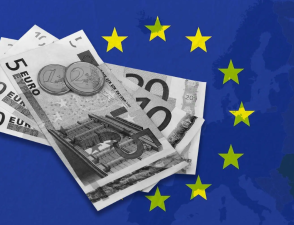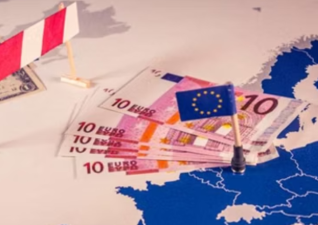Because the EU lacks a military power comparable to that of the United States, and because it recognizes that globalization is increasingly opening national borders and intertwining international and domestic affairs, relying solely on military force is no longer effective in maintaining lasting peace and security worldwide or regionally.
Therefore, the EU is committed to leveraging various forms of "soft power" to influence its external world. Exporting ideas, rules, and institutions has become a key component of the EU's foreign relations. To this end, the EU is actively utilizing policy tools such as trade and aid, striving to exert influence through participation in the development of international and regional multilateral institutions.

Establishment and Development of the EU
The European Union (EU) is an institution comprised of 28 independent states committed to deep economic and political cooperation. The EU gradually developed after World War II, its origins traceable to the reconstruction of Europe after World War II. Faced with the enormous challenges of economic, political, and cultural reconstruction, Europeans gradually realized that their past economic and political systems had contributed to their predicament. Consequently, they became willing to relinquish some of their national sovereignty for greater economic benefits and a more stable political environment. In 1950, French Foreign Minister Robert Schuman proposed the initial concept of European unification, which involved integrating the coal and steel industries. This idea was enthusiastically embraced by six countries—Belgium, West Germany, France, Italy, Luxembourg, and the Netherlands—who jointly established the European Coal and Steel Community (ECSC) through the Treaty of Paris. As integration progressed, the 1957 Treaty of Rome further established a common market among the six countries. In 1967, this core group was expanded to form the European Community (EC), comprising the European Parliament, the European Commission, and the Council of Ministers. The 1993 Maastricht Treaty further solidified the three pillars of EU integration: economic community, foreign policy, and coordination of domestic affairs. Today, the EU has 28 member states, encompassing most of Europe's economic, industrial, and demographic strengths. Its highly educated population reaches 495 million, 60% more than that of the United States. Furthermore, EU trade with the rest of the world accounts for 20% of global imports and exports.
The EU is a supranational body, similar in status to a regional government. Any European country can apply for membership as long as it adheres to common principles of freedom, democracy, respect for human rights and fundamental freedoms, and the rule of law. Since 1973, numerous countries have joined, including Denmark, Ireland, the United Kingdom, Greece, Spain, Portugal, Austria, Finland, and Sweden. In 2004, the EU welcomed ten new members, further expanding its reach. Currently, five candidate countries are awaiting membership: Iceland, Montenegro, Serbia, the former Yugoslav Republic of Macedonia, and Turkey.

EU's Global Influence
- Trade and Investment Impact
The EU plays a vital role in global trade and investment. It is the world's largest trading economy and a major source of global foreign direct investment, accounting for 31% of global flows of goods, services, and capital. Due to its size and importance as a trading partner, EU regulations have a profound impact on the United States, Japan, China, and many other countries.
- Regulation and International Influence
EU regulations shape global trade rules and influence other countries, including the United States. The Microsoft incident exemplifies this influence. The EU enjoys a high reputation in the global business community and is the world's largest trading economy. EU standards often set global trends, particularly in the areas of ecology and sustainability. For example, to reduce electronic device waste, the EU requires recycling of at least 50% of all devices, including mobile phones, computers, home appliances, and televisions.
In addition, the EU possesses the economic power to shape numerous rules that influence global trade. In 2001, the European Commission voted down a proposed merger between General Electric and Honeywell, two American companies, demonstrating its key role in shaping global trade rules. Foreign companies entering the EU market must comply with EU regulations and standards, and this influence extends even to other countries and regions, some of which voluntarily adopt EU regulations. On the international stage, the EU's influence extends beyond the economic sphere to include the formulation of international regulations and participation in global governance.
